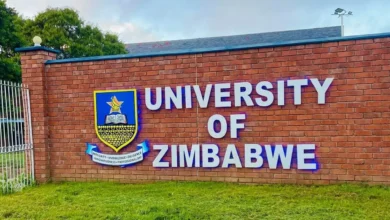Five Premier Zimbabwean Universities and Their Specialties

Zimbabwe, a country renowned for its rich cultural heritage and diverse landscapes, also boasts a vibrant higher education sector. The nation’s universities are known for their commitment to academic excellence, research, and community engagement. Here, we delve into five of Zimbabwe’s leading universities and highlight their unique specialties.
1. University of Zimbabwe (UZ)
Specialties: Medicine, Law, Engineering, and Agriculture
Founded in 1952, the University of Zimbabwe (UZ) is the oldest and largest higher education institution in the country. Located in the capital city, Harare, UZ is a beacon of academic excellence in various fields. The Faculty of Medicine and Health Sciences is particularly renowned, producing highly skilled medical professionals who serve both locally and internationally. The Faculty of Law is another cornerstone, known for its rigorous training and contribution to the legal profession. UZ also excels in engineering and agricultural sciences, offering cutting-edge programs that address the needs of Zimbabwe’s economy.
2. National University of Science and Technology (NUST)
Specialties: Applied Science, Engineering, and Technology
Established in 1991 and situated in Bulawayo, NUST is a hub for innovation and technological advancement. The university focuses on applied science, engineering, and technology, aiming to drive industrial development and modernization in Zimbabwe. Its faculties of Applied Science and Industrial Technology are particularly noteworthy, providing students with hands-on experience and exposure to the latest technological trends. NUST’s commitment to research and development has positioned it as a leader in scientific and technological education.
3. Midlands State University (MSU)
Specialties: Social Sciences, Business, and Media Studies
Midlands State University (MSU), located in Gweru, has rapidly grown since its establishment in 1999. It is particularly acclaimed for its programs in social sciences, business, and media studies. MSU’s Faculty of Social Sciences offers diverse programs that explore contemporary social issues, while the Faculty of Commerce prepares students for the dynamic business world. The Department of Media and Society Studies is a pioneer in media education, producing graduates who excel in journalism, public relations, and communication.
4. Chinhoyi University of Technology (CUT)
Specialties: Information Technology, Hospitality, and Tourism
Chinhoyi University of Technology (CUT), founded in 2001, is dedicated to producing graduates with practical and technological skills. Located in Chinhoyi, the university is well-known for its emphasis on information technology, hospitality, and tourism. The Faculty of Information Sciences and Technology offers cutting-edge programs that equip students with the skills needed in the digital age. Additionally, CUT’s focus on hospitality and tourism reflects the university’s commitment to supporting one of Zimbabwe’s key economic sectors.
5. Africa University
Specialties: Theology, Agriculture, and International Relations
Africa University, located in Mutare and established in 1992, stands out for its pan-African approach and diverse student body. It offers a unique blend of programs with a strong emphasis on theology, agriculture, and international relations. The Faculty of Theology is highly regarded for its comprehensive theological education, fostering spiritual and academic growth. The Faculty of Agriculture and Natural Resources addresses the critical need for sustainable agricultural practices in Africa. Meanwhile, the Faculty of Humanities and Social Sciences provides a global perspective on international relations, preparing students for leadership roles on the continent and beyond.
Zimbabwe’s universities are pillars of higher education, each contributing uniquely to the nation’s academic landscape. From the University of Zimbabwe’s medical and legal programs to Africa University’s theological and international relations courses, these institutions are shaping the future leaders and innovators of Zimbabwe and beyond. By focusing on their specialties, these universities not only advance knowledge but also play a pivotal role in addressing the country’s socio-economic challenges.




